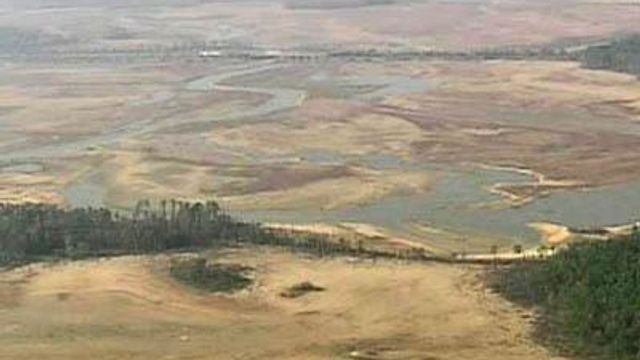Raleigh: Growth didn't drain Falls Lake
Don't blame Raleigh's rapid development in recent years for the critically low levels to which Falls Lake dropped in the past year, city officials said Tuesday.
Posted — UpdatedInstead, the record-setting drought North Carolina has gone through is the culprit, Public Utilities Director Dale Crisp said.
The municipal water system has grown by about 10 percent in the last five years, to 415,000 customers. Although the city pumped more water than ever last year, demand stayed about 35 million gallons a day below the system's treatment capacity.
"People tend to look at a situation and compare it with something they are more familiar with," Crisp said. "It was logical for people to assume the reason they were having to restrict water use is because we've grown too fast when, in fact, it was because we had a historic drought."
He blamed irresponsible lawn-watering for excessive water use, noting consumption has spiked in recent years when rainfall totals have fallen below normal.
"The fact that we added customers and they're adding irrigation systems, I guess (was) a factor," he said. "But the fact that they didn't manage those systems better is a point of emphasis as we go forward."
City Councilwoman Mary-Ann Baldwin said new year-round rules for Raleigh water customers will likely limit how people can irrigate.
"People are using drinking water to water lawns. We have to treat that as a precious commodity," Baldwin said.
The city also plans to build a new treatment plant and build a new reservoir over the next dozen years to almost double its daily capacity and meet growing demand.
Still, some groups said they support tougher water restrictions to keep demand in check as the region grows.
"What we think needs to happen is that, as we're looking to the future, we have to recognize both growth needs and the potential impact of climate change (and) increased evaporation," said Karen Rindge, chairwoman of WakeUP Wake County, a group advocating slower growth.
• Credits
Copyright 2024 by Capitol Broadcasting Company. All rights reserved. This material may not be published, broadcast, rewritten or redistributed.






